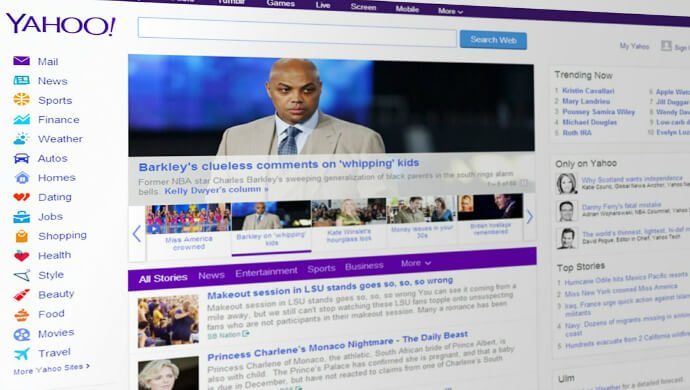Verizon wants to compete with Facebook and Google, but it can’t do so head on, so it has to find an alternative attack plan

On Monday, in the aftermath of the US$4.8 billion acquisition of Yahoo by Verizon, the tech community lamented on how far one of the great Internet pioneers had fallen.
The bigger they are, the harder they fall, and Yahoo’s crash left a crater.
It is highlighted by statistics, such as the US$4 billion purchase of a company worth US$125 billion in 2000, Yahoo’s 20 per cent year-on-year revenues drop reported in July 2016, and the reality of Google providing Yahoo with search ads after a 2015 deal between the two one-time rivals.
The 2008 stumble by Jerry Yang — who rebuffed a US$44.6 billion offer from Microsoft — is an especially painful moment in Internet history.
Which begs the question ‘why did Verizon buy this company?’
I spoke to a handful of people — investors from the Silicon Valley, telcos and Singaporeans who pay attention to these kinds of developments. The thesis was generally the same across the board.
Verizon is trying to compete with Facebook and Google as an advertiser, but it cannot take them head on. So, the company needs to acquire, strike deals or develop platforms in-house to build a calvary of advertising options.
For the companies it acquires, Verizon is trying to leverage specific assets and trim the fat to benefit the entire empire.
Also Read: Cloud fintech service MakeLeaps announces new fundraising round from Rakuten Ventures Japan Fund
Yahoo Finance, Tumblr and the Yahoo Movies platform still have significant value. Under a larger Verizon umbrella, it can be paired with AOL which Verizon bought last year for its media assets like Huffington Post as well as its digital advertising technology.
Less famous, but still important, portfolio companies like AwesomenessTV (Millennials and teenagers) and Complex Media (Pop culture) bring in alternative and younger audiences to sprinkle on the AOL/Yahoo salad.
And yet, Verizon is not a media company. It is a telco.
As of Q1 2016, Verizon is the largest telco in the US by the subscriber base with over 141 million users. AT&T is second with about 130 million subscribers.
And while it is one of the most successful companies in America and a market-dominant player, Verizon is forced to double down on advertising to adapt to a shifting digital market.
After the AOL deal last year, Kevin Fitchard from Forbes pointed out that the company would face an inevitable decline in mobile phone sales in the coming years and would start to completely ditch its older technology.
This week’s acquisition fits into that larger narrative and highlights how essential it is for Verizon to become a viable online advertising alternative to Google and Facebook.
Abhishek Gupta, the Co-founder and Director of Circles.Life, a digital telco in Singapore, explained from the perspective of a telco.
“Verizon’s acquisition of Yahoo is yet another example of the big approaching wave in the telecom space — the meshing together of internet and telecom technologies. Telcos must either acquire or develop digital capabilities in-house to truly serve the digitally savvy consumer of today,” he said in an email to e27.
Also Read: Flipkart-owned fashion e-commerce major Myntra acquires Rocket Internet-backed Jabong
The final nugget of evidence to suggest the purchase is more about Verizon and less about Yahoo is the telco’s decision to leave on the table Yahoo’s assets in Alibaba, Yahoo Japan and its patent portfolio.
Yahoo has a 15 per cent stake in Alibaba, currently worth around US$32 billion, and its 34 per cent investment in Yahoo Japan is worth around US$8.3 billion. The patents are estimated to be worth about US$1 billion.
Those assets may simply have been too expensive for Verizon, but it also hints at a shift in the future of Yahoo.
As The New York Times highlighted, the Alibaba and Yahoo Japan assets are no longer ‘safety nets’ should the company want to raise cash (as it did in 2012 through Alibaba). Now, it is an investment fund, and any sales will end up in the pockets of shareholders.
Which means, as of this week, we no longer live in Marissa Mayer’s ‘Save Yahoo for Yahoo’ world.
Now, it is up to Verizon CEO Lowell McAdam to ‘Save Yahoo for Verizon’.
—
The post Why Verizon bought Yahoo appeared first on e27.